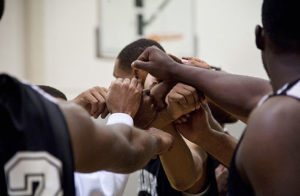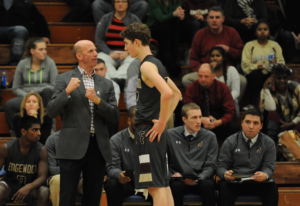‘You… and Your Program:’ Five valuable lessons for athletes
As coaches, we often fail to define what we actually mean with the terminology in our programs. I’m no different.
 During many years of coaching, I assumed players understood the meaning behind my words and phrases. For those who make the same mistake, my approach called “You… and Your Program” could be very helpful. I have used this at several camps, and the response has been favorable. I begin the program with three questions to campers and teams:
During many years of coaching, I assumed players understood the meaning behind my words and phrases. For those who make the same mistake, my approach called “You… and Your Program” could be very helpful. I have used this at several camps, and the response has been favorable. I begin the program with three questions to campers and teams:
- How can you help your program?
- How can you help your team?
- How can you help your coaches?
1. Can you ‘walk the talk?’ We have become a nation of talk. It starts when the younger players observe the higher-level athletes boasting about their talent. “Walk the talk” is a message to embrace at every practice, game and in the classroom. Great leaders know exactly what that means, because they always lead with a purpose.
Not everyone is a leader; we need followers who trust those paving the way. Players must show their skills in the classroom and on the floor. They also should understand that “walking the talk” is about body language, which can affect the attitude and confidence of others.
2. Pay attention to details. The little things add up to make a big impact. This has to be explained, studied and repeated often. The little things begin with school and homework, and athletes must embrace their role as a student. We all know that the little things are a major part of any program. They include:
- Being on time
- Body language
- Energy
- Passion
- Coachability
 Coaches must all be accountable and embrace these points on a daily basis. I also encourage being the best listener in the classroom and on the team. With all the little things that we do, it builds trust with everyone involved in the program. Players have to impress parents, teachers, coaches, friends and bosses. Attention to detail is a life lesson that all coaches should teach in their program.
Coaches must all be accountable and embrace these points on a daily basis. I also encourage being the best listener in the classroom and on the team. With all the little things that we do, it builds trust with everyone involved in the program. Players have to impress parents, teachers, coaches, friends and bosses. Attention to detail is a life lesson that all coaches should teach in their program.
3. Stress the fundamentals. Quality fundamentals make up the road to success. We must teach all students and players to be on track with an individual daily self-improvement plan.
“Four for Life” is part of this plan. It includes:
- Focus
- Attitude
- Preparation
- Effort
I ask players to consider their focus in the classroom and on the court. Is their attitude helping themselves and the team? Are they prepared for class, the upcoming test and practice? Are they keeping up with their chores at home? Are they giving a total effort? “Four for Life” helps players understand and embrace their roles with the team.
Basketball homework always consists of working on strengths and weaknesses. The same goes with their studies by not only working on their interests, but on all subjects. Fundamental work might seem like a waste to some players, but they are a vital part of any program.
4. Tough players win (TPW), tough people win. TPW has helped my winter teams tremendously over the years. They need to understand the true meaning of toughness. It’s a way of life and defined by hard work, a win-the-day attitude, and a never-give-up approach. Many young players link toughness with “talk” and the bully who uses push-and-shove tactics to gain an advantage. But toughness is having a team focus, team attitude and giving a team effort. Real toughness is shown in the classroom with good listening skills, completed homework, helping others succeed and being a great student.
Toughness on the basketball court is staying in a defensive stance, blocking out strong, taking good shots, leading the right way, and staying healthy with good habits. Toughness is standing together as a team.
5. Say ‘no.’ We must teach everyone to have the strength, courage and ability to say “no.” This is a life lesson that must be reinforced. “No, thank you.” “I don’t want to do that.” “No, I have homework.” “No, I have practice.” “No, that’s wrong.” Many of us have lost someone who got into the wrong car with the wrong driver. Alcohol and drugs kill, and our team leaders can help steer players down the right path.
Coaches and teams are so valuable in saving lives. Players who see a problem must step up and help. They could save a life. We must promote the most powerful word we can teach — no.
Dick Luther is an assistant men’s basketball coach at the University of Wisconsin-Whitewater and this fall begins his 52nd year of coaching. He was inducted into the UW-Waukesha Hall of Fame in 2007, the Waukesha South High School Blackshirts Wall of Fame in 2014, and the Wisconsin Basketball Coaches Association Hall of Fame in 2016. His online teachings are available on Twitter at @DickLuther. Learn more at www.coachdickluther.com.









